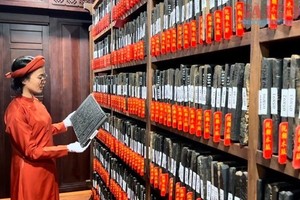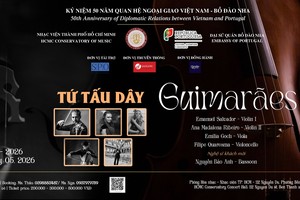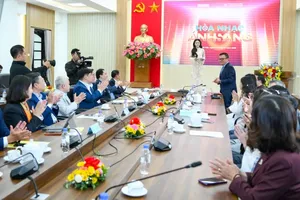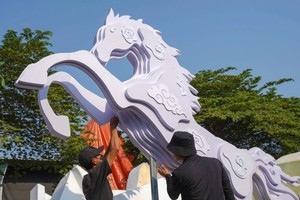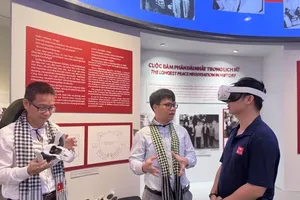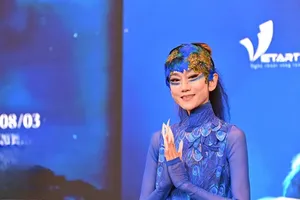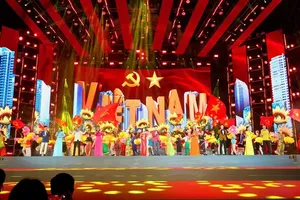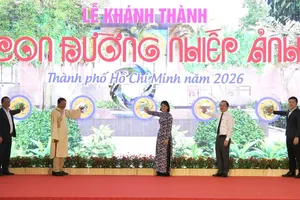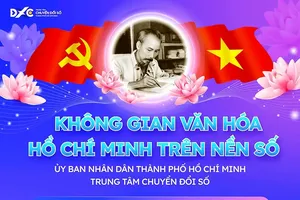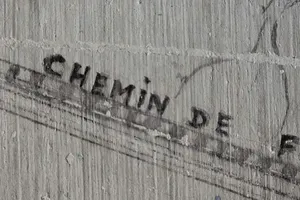
After 20 days in theaters, the film Chot don (Closing the Deal), directed by Bao Nhan and Nam Cito, was quietly withdrawn from circulation. The movie's box office revenue was considered a commercial failure, barely exceeding VND5 billion (US$189,520). This outcome was primarily due to a significant scandal involving the film's lead actress, beauty queen Nguyen Thuc Thuy Tien. Following her arrest, the production team was compelled to use artificial intelligence (AI) to entirely replace her performance.
This decision severely compromised both artistic quality and the audience’s viewing experience.
At the film's premiere in early August, director Nam Cito disclosed that the cast and crew were deeply unsettled upon learning of Thuy Tien's detention. He described the moment as a tremendous shock that left the team demoralized and unsure of how to proceed.
Even Galaxy Studio’s executive chairwoman and producer, Dinh Thi Thanh Huong who is known for her discretion and media shyness was compelled to step forward to address the crisis.
Galaxy Studio’s executive chairwoman Dinh Thi Thanh Huong revealed that the team had initially considered scrapping the nearly completed project altogether. However, unwilling to abandon the immense investment of time, money, and effort, they pressed on. The Closing the Deal team thus became “reluctant pioneers,” pouring additional resources into deploying AI to stand in for Thuy Tien’s character.
Yet the rushed use of this untested approach led to an unfortunate outcome. The film became “famous” not as a work of cinema, but as a cautionary tale of how the downfall of a single KOC could bring devastating consequences.
Previously, Miss Nguyen Thuc Thuy Tien was prosecuted and temporarily detained for the crime of "Deceiving customers" when related to violations in the business of Kera vegetable candy products that she and shareholders of Chi Em Rot Company cooperated to produce. According to the recent investigation conclusion, Thuy Tien was the person who received the highest commission in this deal with an amount of about VND6.8 billion.
To do so, in livestream sales sessions, Thuy Tien, Nguyen Thi Thai Hang (Hang Du Muc) and Pham Quang Linh (Quang Linh Vlogs) provided false information, exaggerating the product's uses to attract consumers. In relation to the incident, Quang Linh Vlogs and Hang Du Muc were also prosecuted and temporarily detained for the crimes of "Producing fake food products" and "Deceiving customers".

In early August, the Department of Cyber Security and High-Tech Crime Prevention under the Hanoi City Police imposed an administrative fine of VND7.5 million on citizen Pham Van Thoai (29, from Hai Phong, widely known as TikToker Pham Thoai and a prominent KOC in recent years) for “providing and disseminating fabricated and false information, distorting facts, slandering, and insulting the reputation of organizations as well as the honor and dignity of individuals.”
Pham Thoai had previously posted on his personal social media account that he was honored to serve as Ambassador of the “Vietnam OCOPEX 2025 – Top Agricultural Products to the City” program. However, the Department of Trade Promotion later confirmed that the Ministry of Industry and Trade had neither appointed nor authorized any individual to act as ambassador for the program, nor had it permitted any coordinating unit or organization to implement such a role. This incident followed earlier controversy surrounding Pham Thoai’s call for charitable donations, after which he was restricted from participating in the Miss International Queen Vietnam 2025 pageant.
These cases illustrate a broader trend of high-profile KOLs and KOCs facing administrative sanctions, prosecution, or even temporary detention for repeated violations. For instance, in connection with misleading advertisements for the nutritional product Hiup 27, three public figures including editor Quang Minh, MC Van Hugo, and MC Hoang Linh—were fined a combined total of VND215 million. All three were required to remove the advertisement and issue corrections to rectify their violations.
Commenting on the matter, Director Le Quang Tu Do of the Department of Radio, Television and Electronic Information under the Ministry of Culture, Sports and Tourism stressed to caution artists involved in widespread advertising campaigns. Without due diligence, they risk violating the law and facing prosecution at any time. False advertising requires not only an apology but also voluntary remedial action and a serious acceptance of legal penalties.
Director Le Quang Tu Do of the Department of Radio, Television, and Electronic Information under the Ministry of Culture, Sports and Tourism stated that many artists show a weak understanding of the law regarding advertising. He noted that they often deviate from prepared scripts, adding unverified claims or exaggerating product benefits to meet brand demands.
Furthermore, Director Le Quang Tu Do explained that if artists accept shares or stocks to act as a brand representative, they can be considered co-producers. If the product is later found to be counterfeit, they could face criminal charges for producing counterfeit goods.
Deputy Head Nguyen Van Dung of the Department of Cyber Security and Prevention of High-Tech Crime (PA05 - Ho Chi Minh City Police) also commented on the challenges of the digital environment. He pointed out that some key opinion leaders (KOLs) and key opinion consumers (KOCs) either intentionally or unintentionally promote products of unknown origin, without proper verification, and sometimes violate regulations on labeling, intellectual property, or food safety. Additionally, there are instances where KOLs/KOCs are hired to provide dishonest reviews, defame competitors, and create information disruptions, which erodes consumer trust in the e-commerce market. These activities also lead to risks of cybercrime, high-tech fraud, and the illegal trading of customer data.
The recent violations by prominent KOLs/KOCs, such as Thuy Tien, Quang Linh Vlogs, Hang Du Muc, and Pham Thoai, are particularly concerning as they were once seen as role models for young people. The downfall of these figures not only damages public trust but also has long-term consequences, causing society to become more skeptical of the values associated with celebrity status. Unfortunately, such cases are becoming increasingly common and are often discovered after significant damage has been done.
People's Artist Xuan Bac, Director of the Department of Performing Arts (Ministry of Culture, Sports and Tourism), shared his view that the increasing number of legal violations by KOLs/KOCs has led to a crisis of trust among the public, making people more fearful of being scammed in various aspects of life.




